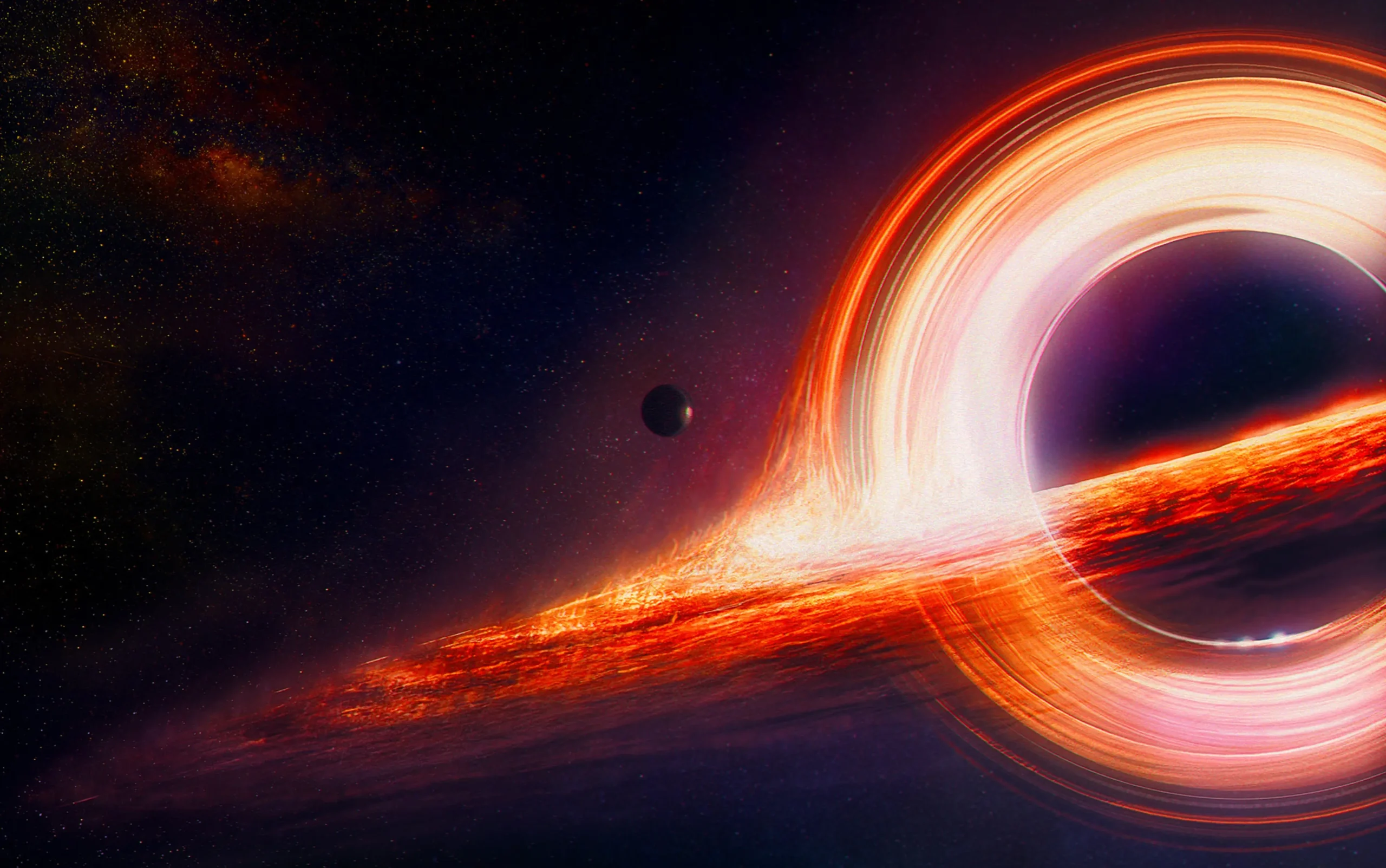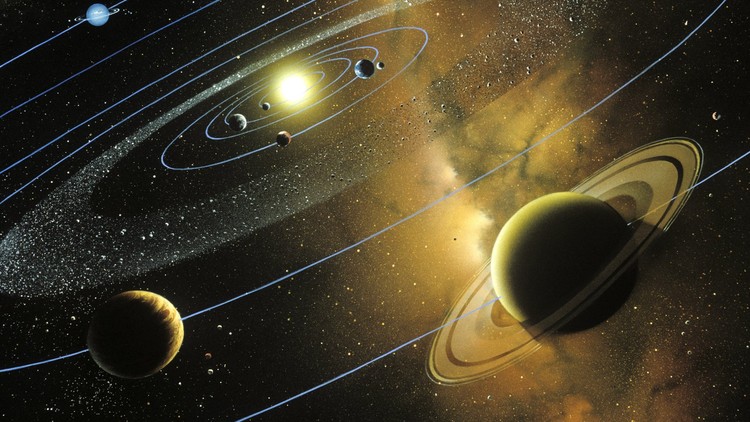Description
This course examines two of the most mysterious aspects of the universe: black holes and dark matter. You’ll learn about the physics behind black holes, including the event horizon, gravitational forces, and singularities, as well as their role in galactic evolution. The course also delves into the concept of dark matter, its evidence in galaxy rotation, and its influence on the universe’s structure. Through thought experiments and real data from telescopes, you’ll explore the fascinating ways these phenomena challenge our understanding of physics. Perfect for those with a basic understanding of astronomy, this course offers insights into the enigmatic forces shaping our universe.
What you'll learn
What You Will Learn:
By the end of this course, you will be able to:
- Understand the basics of black holes: Their formation, structure, and the physics governing them, including the event horizon, singularity, and Hawking radiation.
- Learn about different types of black holes: Stellar-mass black holes, supermassive black holes, and intermediate black holes.
- Explore the concept of dark matter: What it is, how we detect it, and its role in shaping the universe.
- Understand the relationship between black holes and dark matter: How black holes may be linked to dark matter in galaxy formation and evolution.
- Investigate the latest discoveries and theories: Learn about current research, observations (like gravitational waves), and how scientists are using tools like the Event Horizon Telescope to study black holes.
- Dive into the mysteries of spacetime: How black holes warp spacetime and affect the laws of physics.
Syllabus
Course Syllabus:
Week 1: Introduction to Black Holes
- What is a Black Hole?: Basic concepts and definitions.
- The Birth of Black Holes: Stellar evolution, supernovae, and collapse.
- Key Features of Black Holes: Event horizon, singularity, and escape velocity.
- Understanding Gravity and Spacetime: General relativity and how black holes warp spacetime.
Week 2: Types of Black Holes
- Stellar-Mass Black Holes: How they form and what we know about them.
- Supermassive Black Holes: Their role in galactic centers, formation, and the mysteries surrounding their size.
- Intermediate-Mass Black Holes: The “missing link” in black hole research.
- Detection of Black Holes: How we observe black holes indirectly through their effects on nearby objects (X-ray emissions, gravitational waves, etc.).
Week 3: The Physics of Black Holes
- Spacetime and the Singularity: What happens at the center of a black hole?
- Hawking Radiation: Stephen Hawking’s theory of black hole evaporation.
- The Information Paradox: What happens to information that falls into a black hole?
- Time Dilation and Gravitational Lensing: Effects of extreme gravity on time and light.
Week 4: Dark Matter: The Invisible Universe
- What is Dark Matter?: Defining dark matter and its role in the universe.
- How We Know Dark Matter Exists: Observations of galaxy rotation curves, gravitational lensing, and cosmic structure.
- Types of Dark Matter: Cold dark matter vs. hot dark matter.
- Leading Theories: WIMPs, axions, and sterile neutrinos.
Week 5: The Role of Dark Matter in the Universe
- Cosmic Structure Formation: How dark matter influences galaxy formation and clusters.
- Dark Matter and Galaxy Rotation: Why galaxies spin faster than expected.
- Dark Matter in the Early Universe: Its influence on the formation of the cosmic microwave background (CMB).
- Current Dark Matter Research: Direct detection experiments and particle colliders.
Week 6: Black Holes and Dark Matter: Connections
- How Black Holes and Dark Matter Relate: Theories about dark matter’s role in the formation of black holes.
- Black Hole Mergers and Dark Matter: Gravitational wave observations and their implications for dark matter.
- Dark Matter in Galactic Nuclei: How supermassive black holes and dark matter might interact in the centers of galaxies.
- Simulations and Models: How scientists use computational models to explore the relationship between black holes and dark matter.
Week 7: Observing Black Holes and Dark Matter
- The Event Horizon Telescope (EHT): How the first image of a black hole was taken.
- Gravitational Waves: How LIGO and Virgo detectors are revolutionizing our understanding of black holes.
- Dark Matter Detection: Methods and challenges in detecting dark matter particles.
- Future Technologies: Upcoming telescopes and experiments to study black holes and dark matter.
Week 8: The Future of Black Hole and Dark Matter Research
- Unsolved Mysteries: Theories on black holes and dark matter that remain unresolved.
- The Role of Quantum Mechanics: The search for quantum gravity and how black holes challenge current physics.
- The Search for Life in a Universe Dominated by Dark Matter: How dark matter and black holes may influence the potential for life in the universe.
- Next-Generation Observatories: What we hope to discover in the coming decades through new space missions and ground-based observatories.






Jibrin –
” ‘Understanding Black Holes and Dark Matter’ is an exceptional online course that has deepened my knowledge of these enigmatic cosmic phenomena. The lectures are delivered by renowned astrophysicists with unmatched clarity and depth, making complex concepts accessible to learners. The interactive simulations, thought-provoking assignments, and engaging discussions have enhanced my understanding and ignited a passion for further exploration. I highly recommend this course to anyone seeking to unravel the mysteries of our universe.”
Yetunde –
“I took this course to enhance my knowledge of black holes and dark matter. The instructor, Dr. Emily Carter, was exceptional. She explained complex concepts in a clear and engaging way, using visuals and real-world examples to make the material relatable. The course structure was well-organized, with interactive simulations and quizzes to reinforce learning. I particularly appreciated the additional resources provided, which allowed me to delve deeper into the subject. Overall, this course exceeded my expectations and ignited a newfound passion for these fascinating cosmic mysteries.”
Aminat –
“This course was an eye-opening experience. I gained a deep understanding of black holes and dark matter, complex and captivating subjects explained with clarity and enthusiasm. The interactive simulations and hands-on exercises were invaluable in solidifying my comprehension. The instructor’s passion for the topic was contagious, inspiring me to pursue further exploration in this fascinating field.”
Tijjani –
“This course was an excellent introduction to the fascinating world of black holes and dark matter. The instructor’s expertise was evident in the clear and engaging explanations, which made complex concepts accessible to learners of all levels. The interactive simulations and real-time examples brought the material to life, fostering a deep understanding and appreciation for the subject. I highly recommend this course to anyone curious about these enigmatic phenomena.”